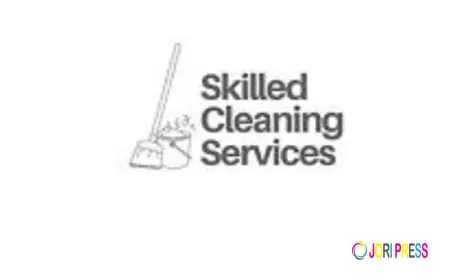7 Signs Your Community Needs a New HOA Partner

If your HOA board feels like it’s constantly putting out fires instead of building a thriving community, you’re not alone. Across the United States—and especially in dynamic regions like the Bay Area—homeowner associations often struggle with outdated systems, poor communication, rising dissatisfaction, and unclear financials. And while change can be daunting, not changing can cost even more—your property values, peace of mind, and neighborhood trust are all on the line.
This article is your full roadmap: a clear, no-fluff guide to recognizing the 7 signs your community needs a new HOA partner. Whether it’s vendor issues, transparency gaps, or lack of modern tools, we’ll help you spot the red flags—and introduce you to what a reliable, tech-driven, and responsive partner can offer. Let’s dig in and help your community get back on track.
1. Poor Communication and Transparency
Imagine this: You send an urgent request to your HOA about a safety hazard in a common area. Days pass. No reply. Weeks later, the issue is still unresolved—and worse, you find out other homeowners are experiencing the same silence.
This is the first and most visible red flag.
Key Signs to Watch For:
-
Board members aren’t informed in real-time
-
Homeowners are left in the dark about decisions
-
Updates come late—or not at all
-
Email or phone communication is spotty or unprofessional
Strong HOA management relies on consistent, transparent communication. Without it, small issues become neighborhood-wide frustrations.
2. Maintenance is Slipping Through the Cracks
When you look around the community, do you see cracked sidewalks, faded paint, or broken outdoor lighting? That’s not just aesthetics—it’s neglect. A reliable HOA partner proactively schedules and oversees maintenance so issues are resolved before they escalate.
Common Failures Include:
-
Deferred landscaping or cleaning
-
Broken gym equipment or pool maintenance delays
-
Infrequent inspections
-
Unresponsive vendors
If your HOA is reactive instead of proactive, it’s a sign of weak infrastructure and mismanagement.
3. Financial Reports Are Confusing or Missing
A healthy HOA runs on clear, well-documented finances. Budgets, reserves, and expense reports should be accessible, accurate, and updated regularly.
But when:
-
Financial reports are delayed or vague
-
Homeowners don’t know where dues are going
-
Emergency expenses keep “popping up”
…it’s time to reconsider your HOA management.
One of the biggest trust killers is a lack of financial transparency. You deserve to know where every dollar goes.
4. Rules Are Applied Inconsistently
Selective enforcement leads to chaos.
If some homeowners are penalized for violations while others are ignored for the same issues, your community will quickly lose confidence in leadership.
Typical Inconsistencies:
-
Some residents get fined for minor issues
-
Others repeatedly break major rules without consequence
-
Conflicting interpretations of the CC&Rs
The right HOA partner ensures all rules are fairly applied and clearly communicated.
5. Vendors Are Unreliable or Overpriced
You’ve probably seen it: A contractor gets hired, does a halfway job, and disappears. Or worse, projects cost more than they should due to lack of bidding and negotiation.
This is where expert management makes all the difference.
If your current HOA management lacks modern tools, consistent communication, or the ability to scale with your community, it may be time to explore more professional options. Many Bay Area communities are now switching to providers like HOA Unlimited — a trusted name in full-service HOA management known for combining expert support with cutting-edge technology for both residential and commercial communities.
They don’t just hire vendors—they manage them, audit performance, and ensure fair pricing.
6. Homeowners Are Increasingly Frustrated
Are you noticing fewer people attending meetings? More complaints than compliments? When your HOA is failing to serve its people, morale drops.
Look for These Signs:
-
Empty chairs at board meetings
-
Facebook or group chats filled with rants
-
Homeowners requesting audits or transparency
If you sense disconnect and disinterest growing, it could stem from poor management—not poor community members.
7. Your Technology Is Outdated (or Nonexistent)
Still collecting paper checks? Posting meeting notices on the community bulletin board? It’s 2025, and modern HOA management should feel… well, modern.
The best HOA companies offer:
-
Online payment portals
-
Digital record access
-
App-based alerts
-
Community forums and chat features
Firms like HOA Unlimited lead with modern tech and mobile-friendly solutions, streamlining operations while giving homeowners easy access and peace of mind.
Why These Signs Matter More Than You Think
Ignoring these red flags doesn’t make them go away. Instead, they often lead to:
-
Lower property values
-
Legal disputes
-
Unhappy residents
-
Board burnout
Your community deserves more than just “okay” management. With the right partner, everything from landscaping to legal compliance improves—and it shows.
What the Right HOA Partner Looks Like
A high-performing HOA management firm is:
-
Transparent and responsive
-
Skilled at financial planning
-
Fair and balanced with enforcement
-
Tech-savvy and forward-thinking
-
Focused on community building
Real Community Transformations
Take this real-world example:
A 120-home community in the Bay Area was drowning in delayed repairs, rising costs, and unclear financials. After switching to a qualified firm:
-
Monthly expenses decreased by 18%
-
Maintenance turnaround time dropped to 48 hours
-
Homeowner participation in meetings tripled
Within one year, the community saw a measurable increase in home values and satisfaction. That’s the power of expert partnership.
Checklist: Choosing the Right HOA Company
Here are a few questions to ask:
-
Can you provide detailed financial reports monthly?
-
How do you select and review vendors?
-
What is your typical response time to homeowner requests?
-
Do you provide digital access to documents and payments?
-
Can we speak to references from other communities?
Don’t settle. Interview multiple firms and find the right cultural and operational fit.
Transition Tips for a Smooth HOA Switch
Switching doesn’t have to be painful.
Here's how to make it easier:
-
Notify homeowners well in advance
-
Organize records and financials for transfer
-
Set expectations with new management
-
Host a community “meet your manager” event
-
Monitor results within the first 90 days
Measuring Success After the Switch
Once your new partner is in place, track:
-
Average issue resolution time
-
Community participation rates
-
Budget accuracy
-
Vendor performance ratings
-
Homeowner satisfaction scores
You’ll quickly see whether things are trending in the right direction.
Final Thought: Your Community Deserves Better
If you're tired of doing the heavy lifting while your HOA partner lags behind, the message is clear: it’s time for a change.
Your neighborhood isn’t just real estate—it’s a community, a shared investment, and a lifestyle.
FAQs
Q1: How often should an HOA change management companies?
Only when necessary—usually every few years if major issues arise. Don’t switch often, but don’t avoid it when things go wrong.
Q2: Can homeowners vote to change HOA managers?
Yes, in many states, a homeowner petition or board vote can trigger the change.
Q3: What’s the biggest benefit of hiring a professional HOA firm?
Accountability, financial accuracy, and reduced board stress—plus happier homeowners.
Q4: Will switching HOA firms disrupt community services?
Not if handled well. With the right transition plan, the switch can be seamless.
Q5: Is HOA Unlimited a good option for small communities?
Yes. They offer scalable services tailored for both small and large HOAs.
Author Bio
Jordan Maxwell is a property management consultant with over 12 years of experience working alongside HOAs across the U.S. His work focuses on helping communities streamline operations, improve transparency, and boost homeowner satisfaction through modern technology and strategic leadership.
What's Your Reaction?
 Like
0
Like
0
 Dislike
0
Dislike
0
 Love
0
Love
0
 Funny
0
Funny
0
 Angry
0
Angry
0
 Sad
0
Sad
0
 Wow
0
Wow
0















































